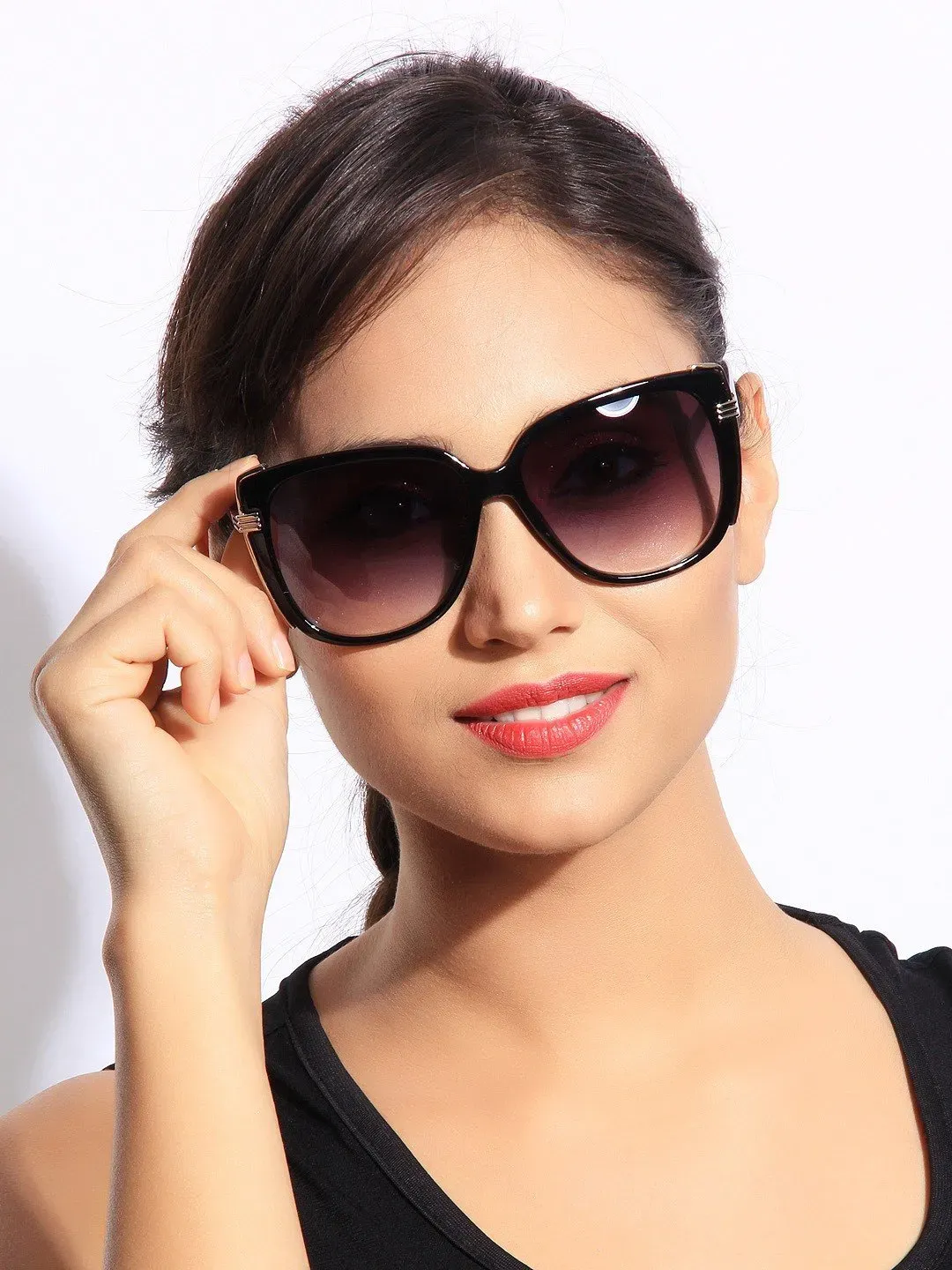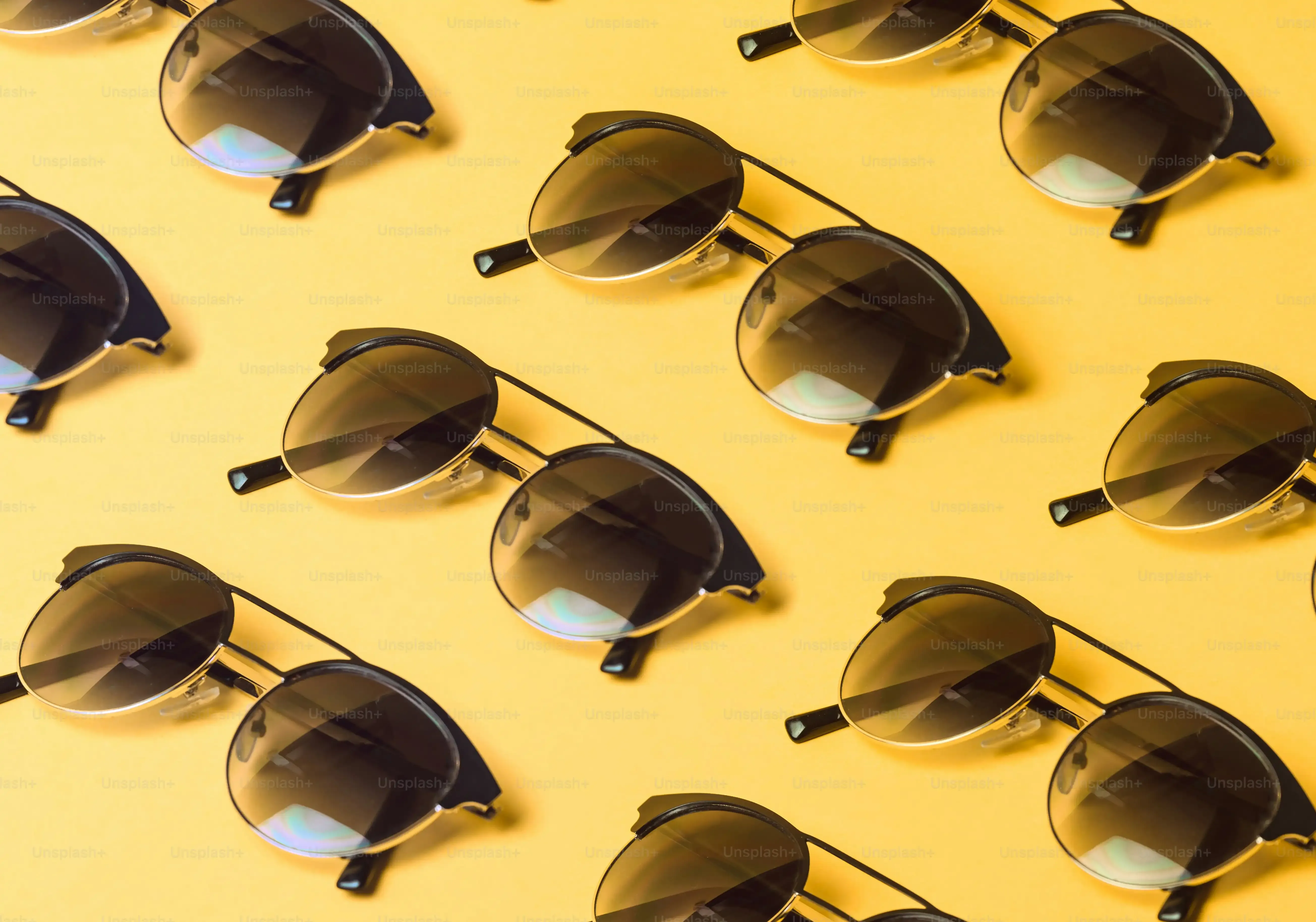Table of Contents
Walk down any high street or scroll through social media, and you'll see them: designer sunglasses. They sit perched on noses, featured in selfies, and displayed prominently in sleek boutiques. But let's be honest, the price tag on a pair of designer sunglasses can make your eyes water faster than a strong onion. You might look at a simple pair of frames and wonder, "What exactly am I paying for here?" Is it just a fancy logo, or is there something more? This isn't just about shielding your eyes from the sun; it's a statement, an accessory, sometimes even an investment. People grapple with the idea of spending hundreds, sometimes thousands, on something that could theoretically be replaced by a ten-dollar pair from the corner store. This article dives into that very question. We'll cut through the marketing hype and explore what goes into making designer sunglasses different, from the materials used to the craftsmanship involved and the undeniable impact of branding. We'll look at whether the quality justifies the cost and help you figure out if stepping into the world of high-end eyewear is the right move for you.
Why Designer Sunglasses Command a Higher Price
Why Designer Sunglasses Command a Higher Price
The Weight of the Name
Let's not kid ourselves. A massive chunk of the cost for designer sunglasses comes down to the name stamped on the temple. You're not just buying lenses and frames; you're buying into a brand's legacy, its image, and its marketing machine. Think about it: that logo represents decades of carefully cultivated cool, luxury, or high fashion. They spend eye-watering amounts on advertising campaigns featuring celebrities you see everywhere, glossy magazine spreads, and prime real estate in department stores and boutiques. That marketing isn't free; it's baked right into the retail price. When you pick up a pair of those sleek black shades, you're paying for the privilege of associating yourself with that specific aesthetic and status. It's the same reason a plain white t-shirt from a high-fashion house costs exponentially more than one from a high-street retailer.
Materials and Manufacturing Don't Come Cheap
While the brand name is a major driver, it's not the *only* factor. Designer sunglasses often utilize higher-quality materials than their budget counterparts. We're talking premium acetates, lightweight titanium, durable alloys, and sometimes even precious metals or exotic woods. The lenses themselves are typically superior, offering better optical clarity, enhanced UV protection, and sometimes specialized coatings like polarization or anti-reflective treatments. The manufacturing process can also be more intricate, involving hand-finishing, precise assembly, and rigorous quality control that you just don't find in mass-produced eyewear. This isn't always the case, mind you – some brands rely heavily on their name while cutting corners elsewhere – but generally, better materials and more careful construction add to the production cost.
- Premium Acetate (for rich colors and durability)
- Lightweight Titanium (for strength without bulk)
- High-Grade Lenses (superior clarity, UV protection)
- Specialized Coatings (polarization, anti-glare)
- Detailed Hand-Finishing
Exclusivity, Distribution, and Markup
Another piece of the puzzle is exclusivity and the distribution model. Designer brands control where their products are sold, often limiting distribution to high-end retailers or their own stores. This creates a sense of scarcity and desirability. They aren't trying to be on every street corner. Then there's the retail markup. By the time those designer sunglasses reach the store shelf, they've gone through several hands – manufacturer, distributor, retailer – each adding their percentage. High-end boutiques have significant overheads, from rent in prime locations to staffing costs, and these costs are, you guessed it, passed on to the consumer. It's a carefully constructed ecosystem designed to maintain the brand's prestige and price point. You're paying for the experience of buying them as much as the product itself sometimes.
Beyond the Label: The Quality and Craftsmanship of Designer Sunglasses
Beyond the Label: The Quality and Craftsmanship of Designer Sunglasses
Materials That Don't Feel Flimsy
so we've established that the name costs a pretty penny. But is there substance behind the flash? Often, yes. When you pick up a pair of well-made designer sunglasses, they just *feel* different. There's a weight, a solidity, that cheap plastic simply can't replicate. High-quality acetate, for example, isn't just molded plastic; it's a material made from cotton fibers and wood pulp, tumbled and polished for days to get that deep sheen and rich color that won't fade or warp easily. Titanium frames? They're incredibly light yet strong enough to survive being accidentally sat on (maybe, don't test this theory). Cheaper frames often use flimsy injected plastic that feels brittle and looks dull right out of the box. The difference is tangible.
The Devil's in the Details: Construction and Finish
It's in the small things that quality really shows its face. Look at the hinges on designer sunglasses. Are they cheap, wobbly things held by a single screw that looks ready to back out? Or are they sturdy, multi-barrel hinges, sometimes custom-designed for the brand, that open and close smoothly and hold their position? The way the frame pieces are joined, the precision of the fit where the lenses meet the frame, the seamless polish on every surface – these aren't accidents. They are the result of careful construction, often involving a significant amount of hand-finishing and stringent quality control checks. This attention to detail ensures the frames keep their shape, sit comfortably on your face, and last longer than a single season.
- Sturdy, multi-barrel hinges
- Precise frame assembly
- Smooth, polished finishes
- Comfortable fit that holds shape
- Rigorous quality inspection
Lenses That Actually Protect Your Eyes
Let's talk about the part that actually does the main job: the lenses. While any sunglasses claiming UV protection should block harmful rays, the quality of that protection and the optical clarity can vary wildly. Designer sunglasses typically use high-grade lenses that offer superior distortion-free vision. Looking through them feels crisp and clear, not like peering through slightly warped glass. Many include polarization, which effectively cuts blinding glare from surfaces like water, snow, or roads – a massive plus for driving or outdoor activities. They often come with advanced coatings like anti-reflective layers on the inside to prevent annoying reflections in your peripheral vision, and scratch-resistant treatments on the outside. You're not just getting shade; you're getting sophisticated eye protection and enhanced visual performance.
Finding Your Signature Style with Designer Sunglasses
Finding Your Signature Style with Designer Sunglasses
More Than Just Blocking Rays
so we've covered why they cost a pretty penny and touched on the quality. But let's talk about the fun part: style. Designer sunglasses aren't just functional items; they are powerful style accessories. The right pair can completely change your look, adding a touch of sophistication, edge, or effortless cool. Think of classic movie stars or musicians – their sunglasses are often as iconic as their faces. They understood that eyewear is part of the overall image. You're not just hiding from the sun; you're curating your personal brand. Finding your signature style with designer sunglasses is about figuring out what frames complement your features and reflect your personality. It's an extension of who you are, or who you want to be that day.
Matching Frames to Your Face (and Vibe)
Choosing the right pair isn't just about picking the most expensive or the one your favorite celebrity wears. It's about fit and form. Certain frame shapes look better on certain face shapes. Round faces often benefit from angular frames like squares or rectangles to add definition. Square faces can be softened by round or oval frames. Heart-shaped faces look great in cat-eye or round styles. Oblong faces can wear larger frames that add width. Beyond face shape, consider your personal style. Are you classic and understated? Bold and avant-garde? Sporty and practical? Your designer sunglasses should feel like a natural part of your wardrobe, not an afterthought. Trying on different styles is crucial. Don't be afraid to step outside your comfort zone in the store. A good place to start exploring various styles and brands is online retailers like sunglasshub.org, where you can browse a wide selection to get an idea of what's out there before committing.
- Round Face: Try square or rectangular frames.
- Square Face: Consider round or oval shapes.
- Heart Face: Cat-eye or round frames work well.
- Oblong Face: Look for larger, wider frames.
- Oval Face: Lucky you, most styles work!
Making the Investment: Where to Find Authentic Pairs
Making the Investment: Where to Find Authentic Pairs
Stick to the Official Channels
so you've decided that maybe, just maybe, those designer sunglasses are worth the plunge. Now comes the crucial part: not getting ripped off. The absolute safest bet for snagging genuine articles is going straight to the source. That means official brand boutiques – the swanky stores dedicated to just one designer. You know the ones, usually located in high-end shopping districts. You can also find authentic pairs at authorized department stores with dedicated luxury eyewear sections. These places get their stock directly from the brand or licensed distributors, minimizing the risk of fakes. Yes, the price is non-negotiable, and you won't find screaming deals, but you gain peace of mind knowing you're getting the real deal, complete with warranty and proper case.
Navigating the Online World for Designer Sunglasses
Buying online offers convenience and often better prices, but it's also where the counterfeit market thrives. Stick to well-known, reputable online retailers specializing in eyewear or luxury goods. Look for sites with clear return policies, secure payment options, and genuine contact information. Be wary of prices that seem too good to be true – they almost always are. Sites like sunglasshub.org, which focus on authentic eyewear, are a much safer bet than some random pop-up ad promising Prada for fifty bucks. If you're considering buying from a peer-to-peer marketplace, demand extensive photos, proof of purchase, and consider using a third-party authentication service. It might seem like extra hassle, but it beats dropping serious cash on convincing plastic fakes.
Safest Bet | Higher Risk (Proceed with Caution) |
|---|---|
Brand Boutiques | Unauthorized Online Sellers |
Authorized Department Stores | Street Vendors |
Reputable Online Retailers (like sunglasshub.org) | Peer-to-Peer Marketplaces (without authentication) |
The Final Verdict on Designer Sunglasses
So, are designer sunglasses worth the considerable outlay? As with most things, it's complicated. You're clearly paying a premium for the brand name, the marketing, and the perceived exclusivity. However, dismissing them entirely as overpriced trinkets would be missing the point. The better materials, superior lens technology, and meticulous construction found in many higher-end pairs do offer tangible benefits in terms of durability, comfort, and optical clarity. They are built to last longer than their fast-fashion counterparts, assuming you don't sit on them. Ultimately, the "worth" comes down to individual priorities. If you value craftsmanship, seek specific aesthetic statements, or see eyewear as a long-term accessory rather than a disposable item, then investing in designer sunglasses might make sense for you. If you simply need basic sun protection, there are certainly more budget-friendly options available. It’s not about whether they are objectively "worth it" for everyone, but whether they align with your needs, style, and budget.
